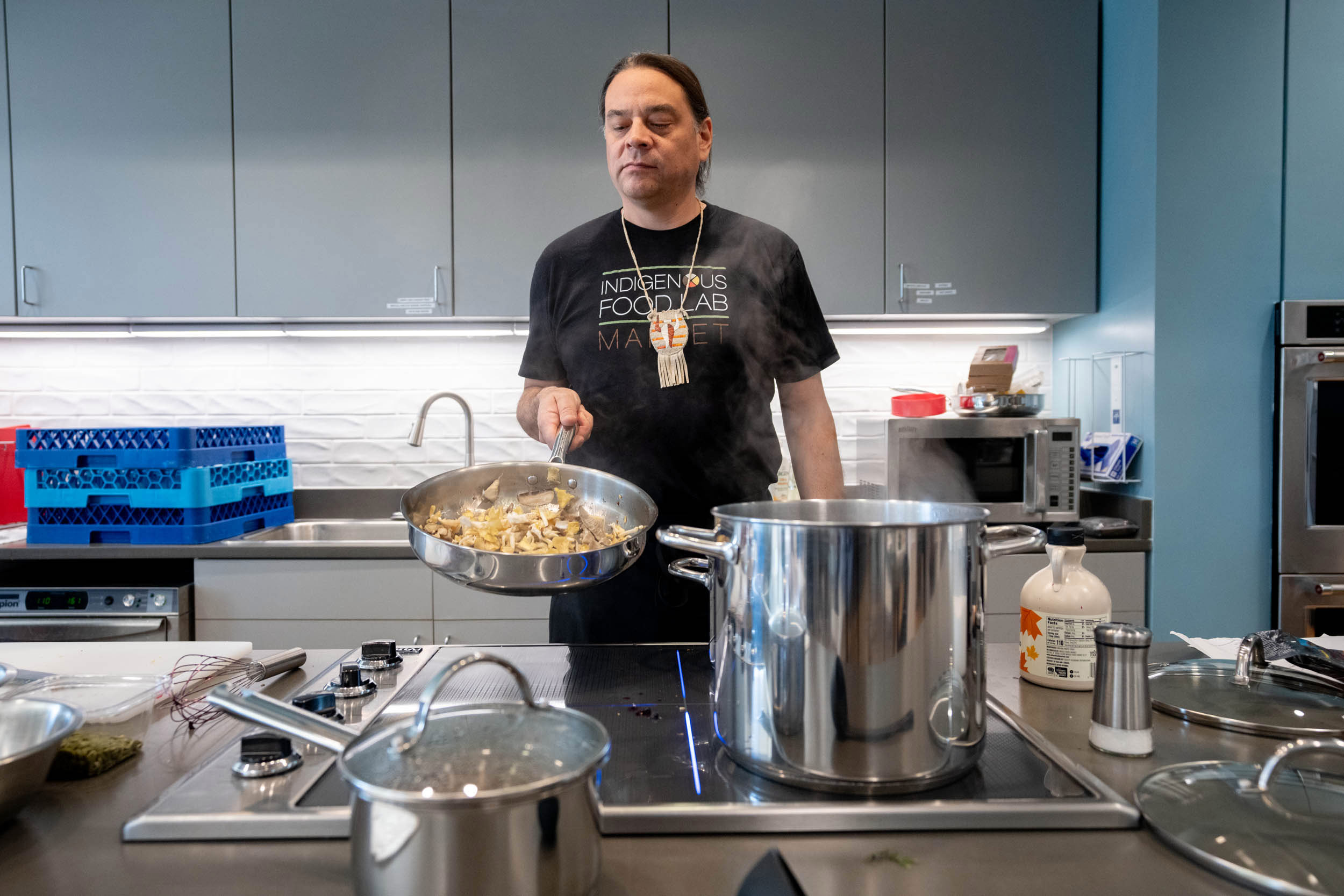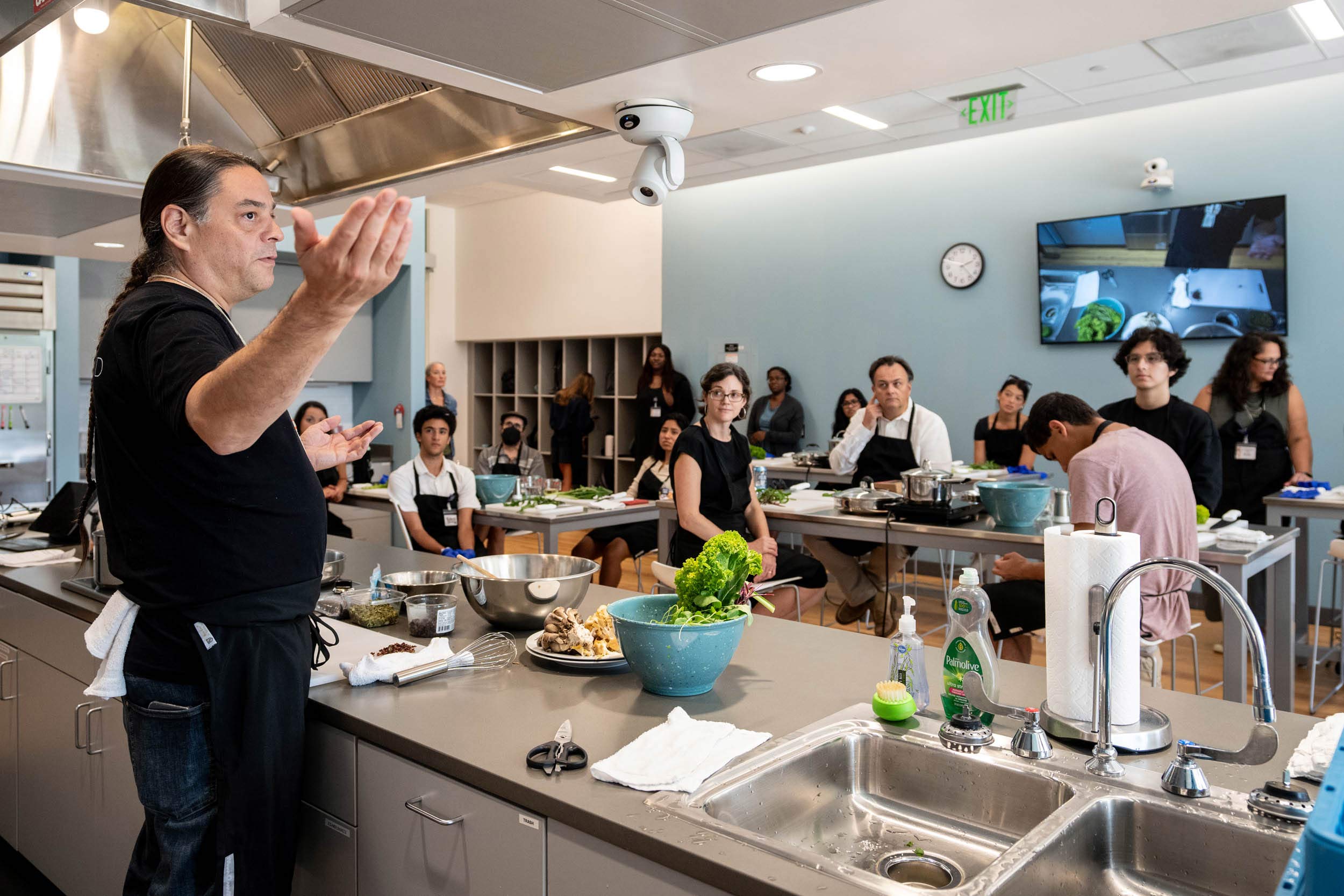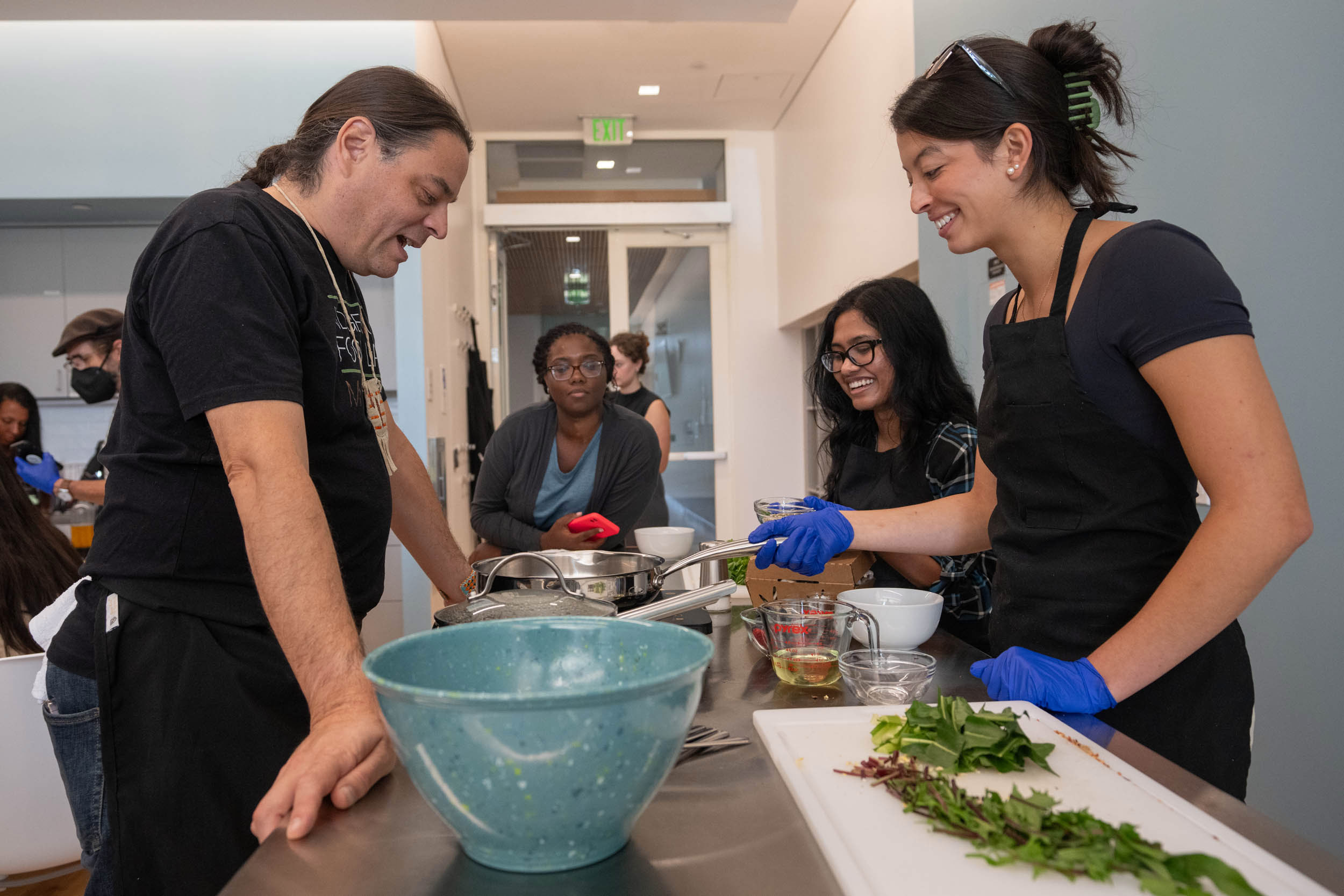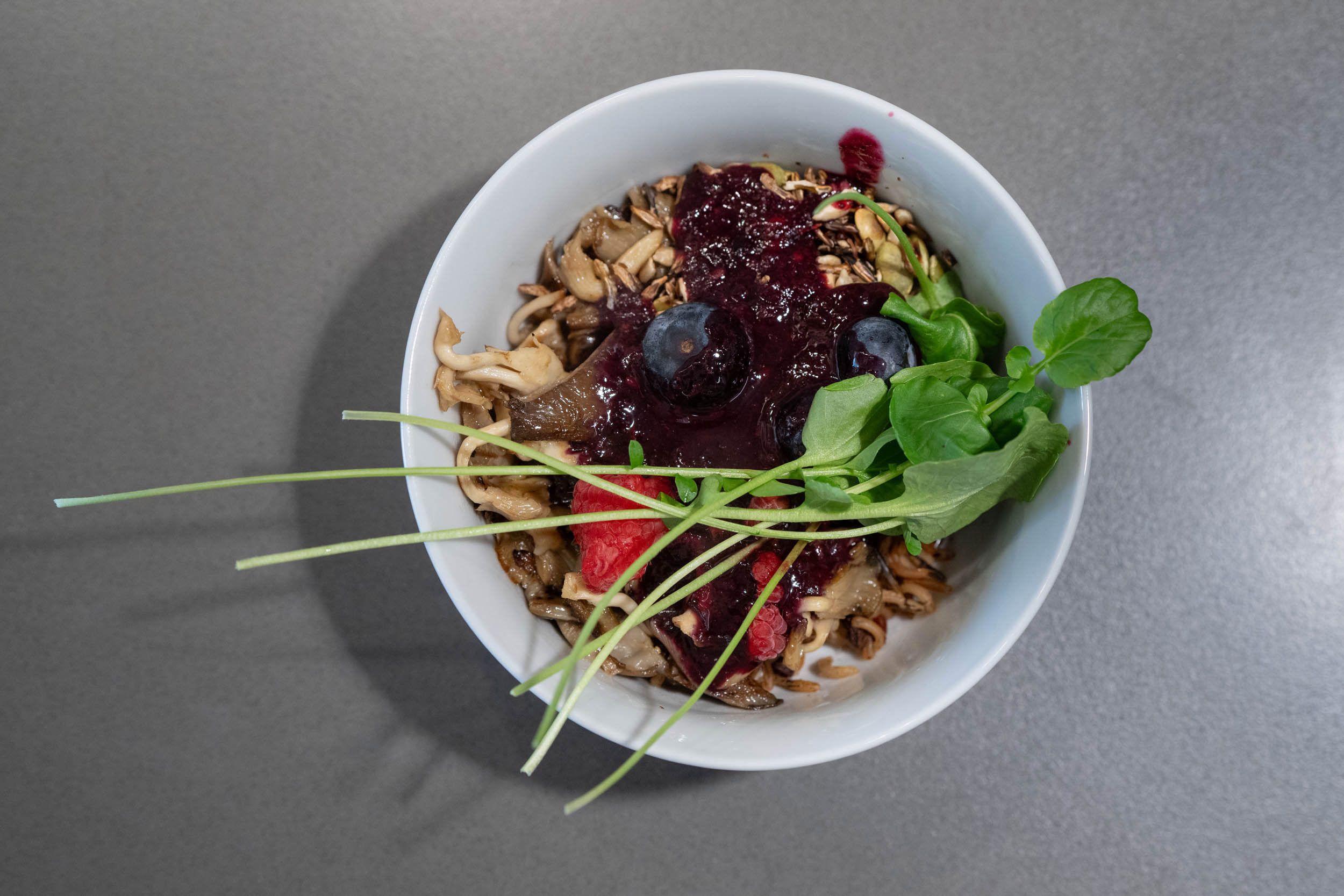An earthy, herbal, sweet scent wafted out of the teaching kitchen inside the Department of Student Health and Wellness at the University of Virginia on a recent afternoon.
That fragrant aroma surrounded students, faculty and staff gathered in front of hot plates to learn how to make wild mushroom rice bowls from locally sourced ingredients, under the guidance of the James Beard Award-winning Lakota chef Sean Sherman.
Sherman, who opened the Indigenous cuisine restaurant Owamni in 2021 near the Mississippi River in Minneapolis, quickly became a leading voice in the food sovereignty movement, which aims to allow communities to control the production of the food they consume.













